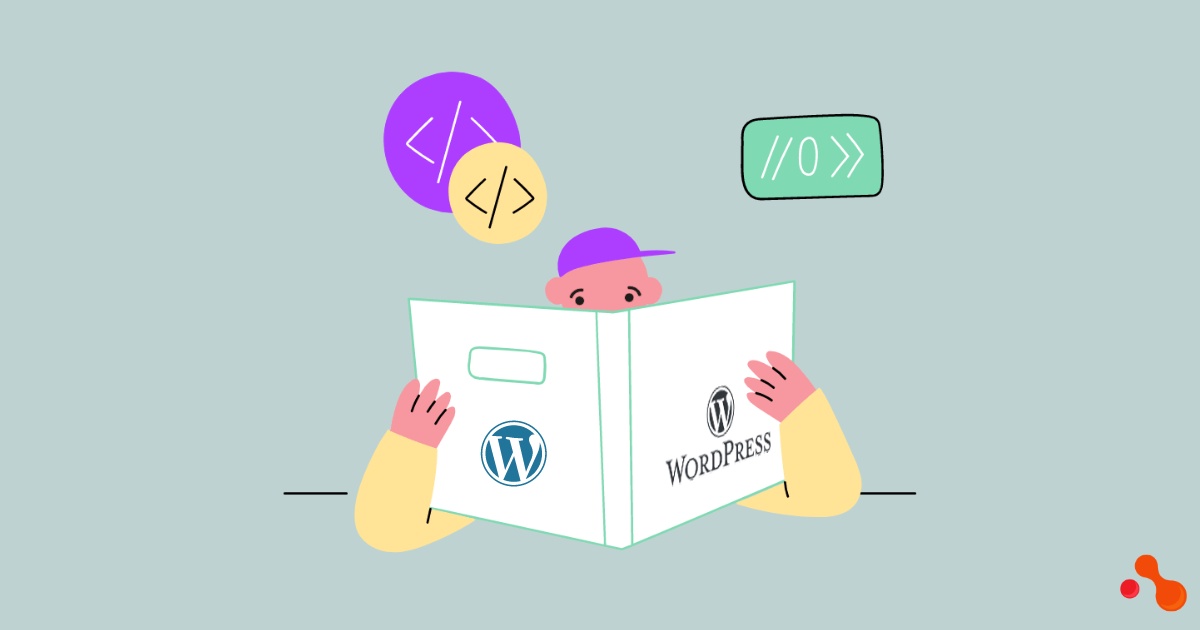Introduction
In today's digital age, having a strong online presence is crucial for the success of any business. And when it comes to WordPress business websites, one key factor that cannot be ignored is SEO, or Search Engine Optimization. SEO is the process of optimizing your website to improve its visibility on search engines like Google. In this blog post, we will explore the importance of SEO for WordPress business websites and delve into effective strategies that can help you optimize your website for success. So let's dive in and discover the world of SEO and its immense potential for your online business!
Understanding SEO for WordPress Business Websites
Search Engine Optimization (SEO) is the practice of improving your website's visibility and rankings on search engine results pages (SERPs). For WordPress business websites, SEO plays a crucial role in attracting organic traffic, increasing brand visibility, and driving conversions. Here's what you need to know in simple terms:
A. What is SEO and why is it important?
- SEO involves optimizing your website's content, structure, and technical aspects to rank higher in search results.
- It's important because most internet users rely on search engines to find information, products, and services.
- Higher rankings lead to more visibility, traffic, and potential customers.
B. How search engines work and their impact on website visibility
- Search engines use complex algorithms to analyze and rank websites based on relevance and quality.
- They consider factors like keywords, user experience, backlinks, and website authority.
- A higher ranking means increased visibility and more chances of being clicked by users.
C. The specific challenges and opportunities of SEO for WordPress websites
- WordPress offers a user-friendly platform for building websites, but SEO requires additional optimization efforts.
- Challenges include optimizing page titles, meta descriptions, and headers, as well as managing URL structures.
- Opportunities arise from the availability of SEO plugins and themes specifically designed for WordPress.
Understanding the basics of SEO for WordPress websites sets the foundation for implementing effective optimization strategies and achieving better search engine rankings.
Keyword Research and Analysis
A. The Significance of Keyword Research in SEO
- Keywords are the foundation of SEO and play a crucial role in determining website visibility.
- Effective keyword research helps businesses understand the language and search terms used by their target audience.
- Targeting the right keywords can lead to higher search engine rankings, increased organic traffic, and improved conversions.
B. Tools and Techniques for Effective Keyword Research
- Keyword research tools such as Google Keyword Planner, SEMrush, and Moz Keyword Explorer can assist in finding relevant keywords.
- Start by brainstorming a list of seed keywords related to your business, such as "WordPress development company" or "WordPress development services."
- Use keyword research tools to expand your list and discover related keywords with high search volumes and low competition.
- Consider long-tail keywords, which are more specific phrases that have less competition but can attract highly targeted traffic.
C. Analyzing Competition and Identifying High-Value Keywords for Your Business
- Analyze your competitors' websites to identify the keywords they are targeting and ranking for.
- Look for gaps or opportunities where your business can differentiate itself by targeting keywords that competitors may have overlooked.
- Focus on high-value keywords that have a good balance of search volume and competition.
- Consider the intent behind the keywords and ensure they align with your business goals. For example, if you provide WordPress development services, target keywords that reflect this, such as "WordPress development" or "WordPress development company."
Remember, effective keyword research is an ongoing process. Continuously monitor keyword performance, adapt your strategy based on data, and refine your keyword list to stay competitive in the ever-changing landscape of SEO.
On-Page Optimization for WordPress Websites
When it comes to optimizing your WordPress website for search engines, on-page optimization plays a crucial role. By making a few key adjustments, you can significantly improve your website's visibility and rankings. Here are some essential on-page optimization strategies:
A. Optimizing page titles, meta descriptions, and headers:
- Craft compelling page titles that include relevant keywords and accurately describe the page's content.
- Write concise and informative meta descriptions that entice users to click through to your website.
- Structure your content using headers (H1, H2, etc.) to help search engines understand the hierarchy of information.
B. Utilizing relevant keywords in content and image optimization:
- Conduct thorough keyword research to identify relevant terms and phrases your target audience is searching for.
- Integrate these keywords naturally into your website's content, including headings, paragraphs, and image alt tags.
- Optimize images by using descriptive file names and adding alt text that includes relevant keywords.
C. Implementing SEO-friendly URL structures and permalinks:
- Create clean and descriptive URLs that incorporate keywords related to the page's content.
- Avoid using numbers or random characters in your URLs, as they can make them less user-friendly and less likely to be clicked.
D. Improving website speed and user experience:
- Optimize your website's loading speed by compressing images, minimizing CSS and JavaScript files, and utilizing caching plugins.
- Ensure your website is mobile-friendly and responsive to provide a seamless user experience across different devices.
- Make navigation intuitive and user-friendly, allowing visitors to easily find the information they are looking for.
By implementing these on-page optimization strategies, your WordPress website will be better equipped to attract organic traffic and improve its search engine rankings. Remember to focus on providing valuable content and a seamless user experience to ensure long-term success.
Technical SEO for WordPress Websites
Technical SEO plays a crucial role in improving the visibility and performance of WordPress websites. Here are some key aspects to consider for optimizing technical SEO:
A. Optimizing website architecture and navigation:
- Use a clear and logical website structure with organized categories and subcategories.
- Ensure that each page is easily accessible within a few clicks from the homepage.
- Implement breadcrumb navigation for improved user experience and search engine crawlability.
B. XML sitemaps and robots.txt optimization:
- Generate an XML sitemap to provide search engines with a comprehensive view of your website's structure and content.
- Optimize the robots.txt file to guide search engine bots on which pages to crawl and index.
C. Handling duplicate content issues:
- Identify and resolve duplicate content problems that can negatively impact search engine rankings.
- Use canonical tags to indicate the preferred version of a page and avoid content duplication.
D. Ensuring mobile responsiveness and cross-browser compatibility:
- Design your WordPress website to be mobile-friendly and responsive across different devices and screen sizes.
- Test your website on multiple browsers to ensure consistent performance and user experience.
Content Strategy and SEO
Creating high-quality, valuable content for your target audience is essential for SEO success. Here's how you can optimize your content strategy:
A. Focus on creating high-quality, valuable content that provides relevant and useful information to your target audience. This helps establish your website as a reliable source and encourages visitors to stay longer.
B. Incorporate keywords naturally into your content. Conduct keyword research to identify relevant keywords and integrate them seamlessly into your headings, subheadings, and body text. Avoid keyword stuffing, as it can negatively impact your website's ranking.
C. Utilize internal linking and anchor text optimization. Internal links help search engines understand the structure of your website and improve navigation for users. Use descriptive anchor text that includes relevant keywords to provide context and improve SEO.
D. Leverage multimedia elements for improved engagement. Including images, videos, and infographics in your content enhances user experience and encourages visitors to spend more time on your site. Optimize these elements with descriptive filenames and alt tags to improve SEO.
Remember, a solid content strategy not only improves your website's visibility but also enhances the overall user experience, leading to increased traffic and conversions.
Link Building and Off-Page SEO
Link building plays a crucial role in SEO, as it helps search engines determine the credibility and authority of your website. Here are some key points to understand about link building and off-page SEO:
A. Importance of backlinks in SEO:
- Backlinks are incoming links from other websites to yours, and they act as "votes" for your website's credibility.
- Search engines consider quality backlinks as a signal of trustworthiness and relevance, leading to higher search rankings.
B. Strategies for acquiring high-quality backlinks:
- Focus on creating valuable content that others will naturally want to link to.
- Reach out to industry influencers and bloggers to request backlinks or guest posting opportunities.
- Participate in online communities and forums, sharing valuable insights and earning backlinks organically.
C. Building relationships and guest posting opportunities:
- Collaborate with other website owners, bloggers, and influencers in your industry.
- Offer guest posts on reputable websites to gain exposure and acquire quality backlinks.
D. Monitoring and managing your website's backlink profile:
- Regularly monitor your backlinks to ensure their quality and relevance.
- Use tools like Google Search Console or third-party SEO software to identify and address any toxic or low-quality backlinks.
Remember, while building backlinks is important, it's equally essential to focus on acquiring high-quality links from authoritative sources relevant to your business.
Local SEO for WordPress Business Websites
Local SEO is crucial for businesses targeting specific geographic areas. It helps increase visibility in local search results, attract local customers, and boost website traffic. Here are key strategies for optimizing your WordPress business website for local SEO:
A. Optimizing for local search results and map listings:
- Claim and optimize your Google My Business listing with accurate contact information, business hours, and categories.
- Include location-specific keywords in your website content, titles, and meta descriptions.
- Embed a Google Map on your website's contact page to enhance local relevance.
B. Managing online reviews and reputation management:
- Encourage customers to leave reviews on platforms like Google, Yelp, and industry-specific directories.
- Respond promptly and professionally to both positive and negative reviews.
- Monitor your online reputation and address any issues promptly to maintain a positive image.
C. Leveraging local directories and citation building:
- Submit your business information to relevant local directories such as Yelp, Yellow Pages, and local chambers of commerce.
- Ensure consistency in your NAP (Name, Address, Phone Number) across all listings.
- Build citations from authoritative websites and directories to boost local search rankings.
D. Targeting local keywords and geographically relevant content:
- Research and incorporate location-specific keywords into your website's content, headings, and meta tags.
- Create blog posts or landing pages that address local topics, events, or news relevant to your target audience.
- Include local landmarks, neighborhoods, or community names to improve local SEO.
Implementing these local SEO strategies will help your WordPress business website attract local customers, increase visibility in local search results, and ultimately drive more targeted traffic to your website.
Conclusion
In conclusion, optimizing your WordPress business website for SEO is crucial for long-term success. Throughout this blog, we have covered key strategies to help you achieve optimal results. Remember to conduct thorough keyword research, optimize on-page elements, focus on technical aspects, develop a solid content strategy, and build high-quality backlinks. However, it's important to understand that SEO is an ongoing process that requires continuous effort and adaptation. By implementing these strategies consistently, you can improve your website's visibility, attract more organic traffic, and ultimately achieve your business goals. Start optimizing today and reap the benefits in the long run!


No comments yet